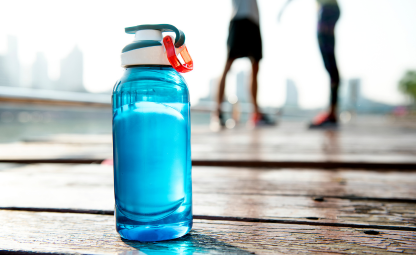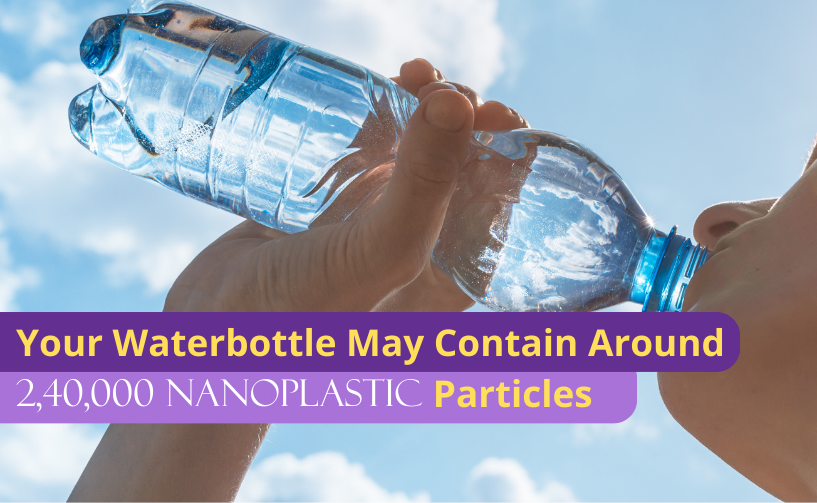Drinking water from plastic bottles has become a commonplace habit for many, but recent findings shed light on a disturbing reality – it might be doing more harm than good. Plastic pollution's detrimental impact on the environment is well-known, but a recent study published in the Journal Proceedings of the National Academy of Sciences has revealed a shocking revelation: nearly 240,000 pieces of nanoplastics are present in plastic water bottles, posing significant health risks.
Nanoplastics in Bottled Water: A Disturbing Discovery
For the first time, researchers from Columbia University in the US have employed newly refined technology to count and identify minute particles known as nanoplastics in bottled water. The study found that each container of bottled water contains tens of thousands of identifiable fragments and previously unknown nanoplastics. This discovery raises serious concerns about the health implications of consuming bottled water.
The Impact of Nanoplastics on Human Health
Nanoplastics, being even smaller than microplastics, pose a unique and alarming threat to human health. Unlike their larger counterparts, nanoplastics can pass through the intestines and lungs directly into the bloodstream, travelling to various organs, including the heart and brain. These tiny particles can invade individual cells and even cross through the placenta to the bodies of unborn babies, raising concerns about potential developmental issues.

Plastic Production and Human Health: A Troubling Connection
The health risks associated with plastics extend beyond nanoplastics, encompassing various aspects of human health. Plastic production workers face an increased risk of diseases such as leukaemia, lymphoma, brain cancer, breast cancer, mesothelioma, and decreased fertility. Similarly, plastic recycling workers experience elevated rates of cardiovascular disease, toxic metal poisoning, neuropathy, and lung cancer, according to a report by The Guardian.
Ways Plastics Affect Human Health
Plastics may have several direct and indirect effects on human health. Plastics can impact human health in the following ways:
- Chemical Exposure: Plastics, especially non-biodegradable ones, may contain chemicals like Bisphenol A (BPA) and phthalates, which can leach into food, beverages, or the environment. These chemicals mimic hormones in the body and have been linked to endocrine disruption, reproductive problems, developmental issues, and increased cancer risks.
- Lung Cancer: The chemicals in plastics may lead to the release of toxins, posing a potential risk of lung cancer and other respiratory diseases.
- Inflammation: Plastics breaking down into microplastics and nanoplastics can be ingested through food, water, and air. The potential health effects of microplastic ingestion, including inflammation and their ability to transport harmful chemicals, are still being studied.
- Respiratory Issues: Plastic production, use, and disposal contribute to air pollution, releasing toxic chemicals and greenhouse gases. Inhaling pollutants from plastic production facilities or waste incineration can lead to respiratory problems like asthma and allergies.
- Water Contamination: Single-use plastics contribute to water pollution, breaking down into microplastics that contaminate the water supply. Ingesting water contaminated with microplastics and associated chemicals can potentially have adverse health effects.
Navigating the Plastic Predicament
Efforts are underway to mitigate the impact of plastics on human health. Initiatives include reducing the use of harmful plastics, promoting recycling, and developing safer alternatives. Adopting sustainable practices, such as reducing plastic consumption, recycling responsibly, and supporting policies prioritising environmental and human health, can contribute to minimising the potential risks associated with plastics.

Conclusion
The revelation of nearly 240,000 nanoplastics in plastic water bottles unveils a hidden danger within a daily habit for many. As we become increasingly aware of the far-reaching implications of plastic pollution, it becomes imperative to rethink our reliance on plastic bottles. By embracing sustainable practices, advocating for responsible plastic use, and supporting policies that prioritise environmental and human health, we can collectively work towards a future where clean water doesn't come at the cost of our well-being.






